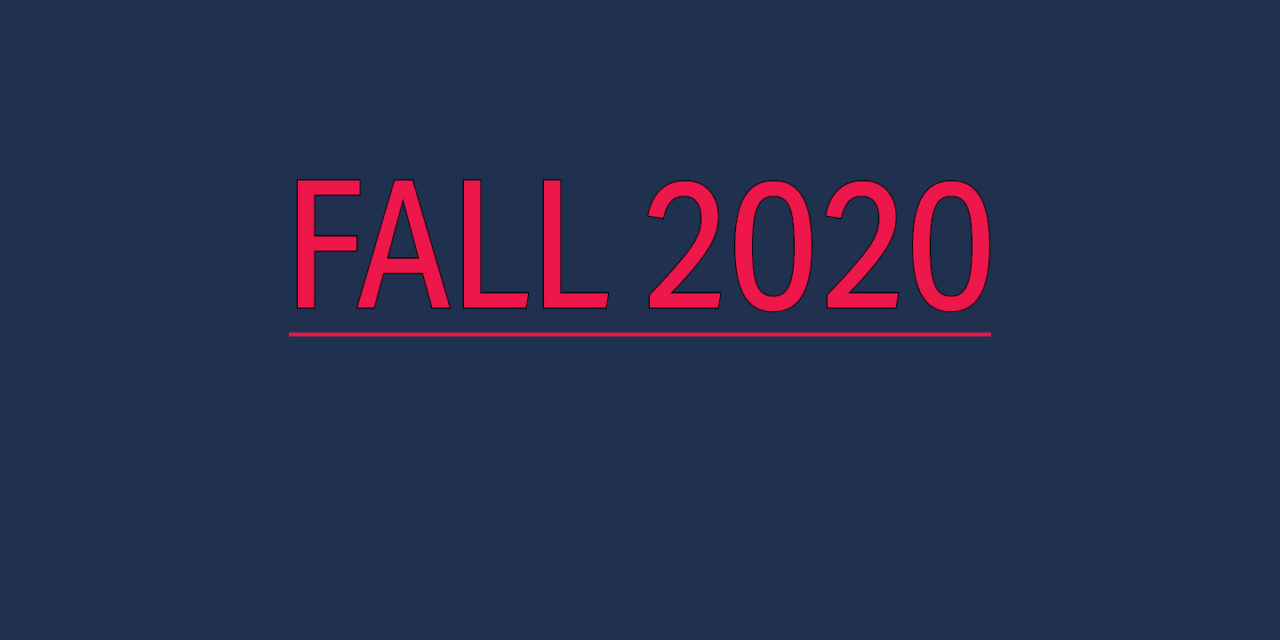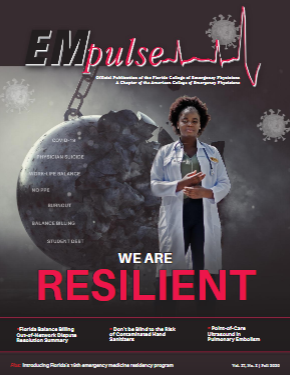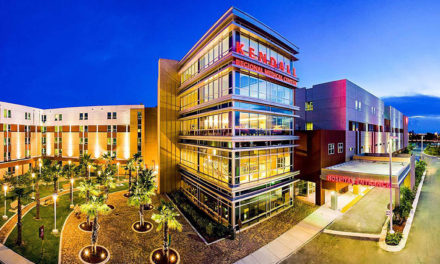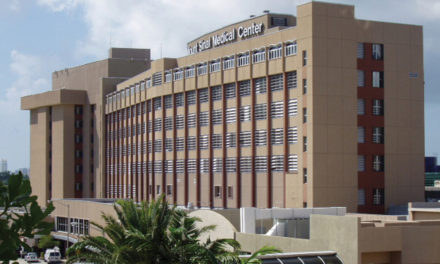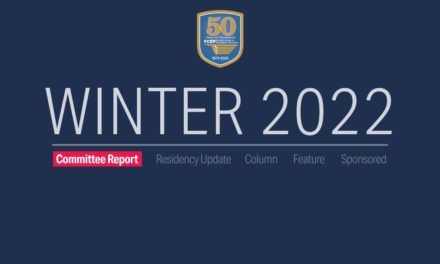Fall 2020: EMS/Trauma
“Just do the next right thing.” While the parents or Disney fans of this group will know this purposely veiled reference, the statement is an exceedingly complex one but an important one nonetheless. 2020 has been a year of confusion and upheaval. 2020 has shown us that even knowing what the next right thing is often challenging. When it comes down to patient care, we should break it down to “if it’s good for the patient, do it; if it’s not good for the patient, don’t do it.” (Credit: Dr. Mitchell, ICU Indian River)
Even more complicated is relating this concept to self-care and safety. The idea of “safety third” has emerged as a reminder of the self-care and protection concept. Initially coined by Mike Rowe of “Dirty Jobs” fame but adapted for EMS by Ben Abo, D.O. and his group with the Carolina Wilderness Medicine, “Safety Third” deals with the reality that “no scene is fundamentally ‘safe’ for first responders and no scene can ever truly be secure, but first responders have a duty to act, balanced by an obligation to assess relative risk.” This fact is especially true during at-risk situations such as house fires, providing care in areas of violence, or during outbreaks or a pandemic. This concept also addresses the fact that we need to plan and prepare for modifiable risks. We need to protect ourselves throughout patient care. As COVID continues to spread, let us focus not only on providing high-quality patient care, but also on taking care of ourselves. We must remember to address not only our physical needs (PPE, masks, etc.), but also our mental needs. We need to identify safe outlets for decompressing and self-care. We need to reach out when help is needed and try and reach out to others in need. We cannot take care of others to our fullest if we don’t take care of ourselves. Always remember, what you do matters!
Now on to the EMS/Trauma Committee update:
Congratulations to Dr. Chrissy Van Dillen for being elected President of the Florida Association of EMS Medical Directors. Dr. Van Dillen has outlined four main goals of the group and created committees to address these goals, including: 1) increase active membership and engagement with the Membership Committee, 2) increase membership value through education, collaboration and partnerships with the Education Committee, 3) enhance technology and resources with the Resources Committee, and 4) lead and support legislation, policy and advocacy efforts that impact EMS with the Government Affairs & Legislative Committee.
State EMS Medical Director Dr. Kenneth Scheppke relayed that due to COVID, some projects are on hold, including the development of state resuscitation criteria and the resuscitation academies. There is, however, renewed interest in other projects involving EMS, including vaccine delivery. More information on prehospital vaccination efforts was recently distributed to members by Melissa Keahey (mkeahey@emlrc.org). Dr. Scheppke also discussed COVID care-related information, including interesting COVID care impacts on resuscitation, noting a trend of less shockable cases, less AED use, less public cases, and more EMS TOR in the field. He also noted the state website for COVID data related information: floridahealthcovid.gov
The Region V Trauma Agency report by Dr. McPherson discussed five priority areas for Trauma Agency EMS guideline protocols: 1) pediatric trauma, 2) prehospital administration of TXA, 3) spinal immobilization, 4) geriatric TBI patients taking anticoagulation medications, and 5) COVID-19 management of severe trauma patients. Final drafts will be sent to the RDSTF-5 trauma advisory board executive committee for review. They also just completed a regional virtual tabletop disaster training on September 24, 2020. ■
This article is part of the following sections:

